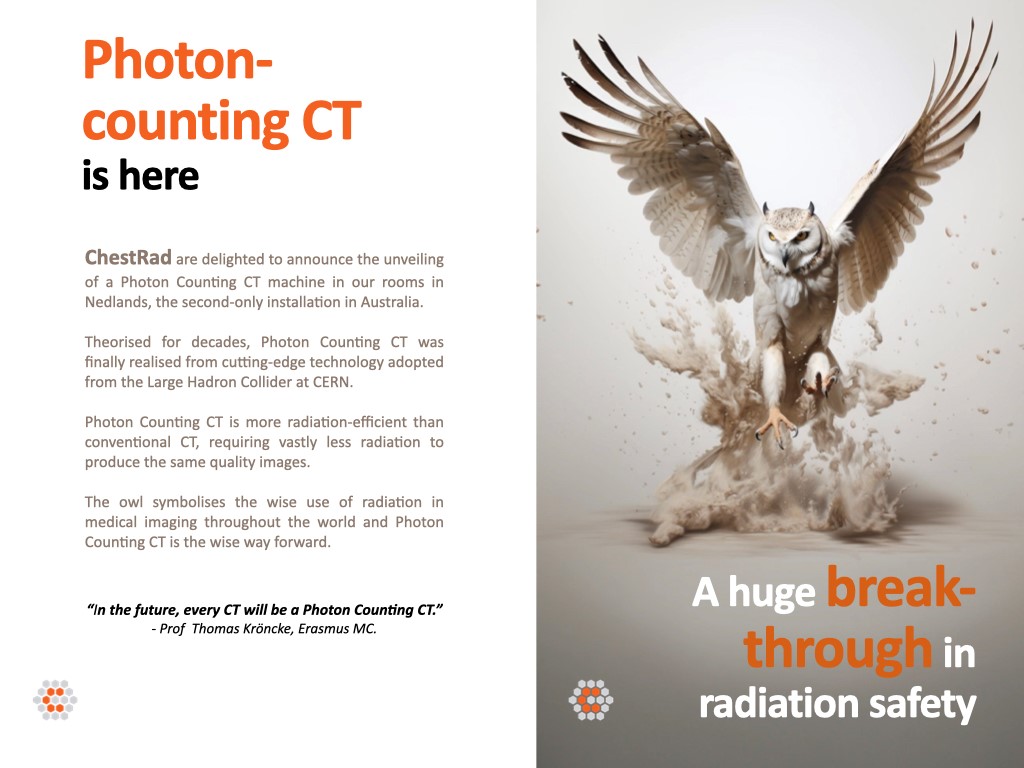CT Coronary Angiograms and
Cardiac CT
These scans are highly specialised and are best done on the most advanced machinery by doctors who have particular expertise.
All of our reporting doctors have the highest level of accreditation, meaning they are allowed to both report coronary CTs and train other doctors to do so. To obtain this accreditation requires a large amount of experience over a long time.
A coronary/cardiac CT requires ECG leads to be placed on your chest. Once we are satisfied with the ECG, which can take several minutes, we will place a small dissolvable tablet under your tongue called GTN (Anginine). The active ingredient is glyceryl trinitrate and it works to dilate your coronary arteries slightly so that we see them better on the scan. Most patients do not feel any effects from this tablet though occasionally you may feel a sensation of the blood pulsing in your head, light-headedness or a mild headache– these symptoms are of no medical concern and usually resolve quickly.
The occasional patient may require a second medication called a Beta Blocker (Metoprolol) which is given intravenously. This medication reduces your heart rate so that again the arteries can be seen better. Our CT scanner (a so-called Dual Source CT) is specifically designed to minimise the number of patients who require this, the only such machine on the market to do so. If you choose to have your scan elsewhere we recommend you seek out a Dual Source CT as these have been proven to be more accurate than all other CT machines. Please note, there are only a few in Perth (one of which is at the Children’s hospital).
Our radiographer will put in an intravenous line, usually in the front of your elbow or back of your hand. This can give a short sharp pain. Thereafter, the scan should be completely painless. During the scan, approximately 50 mL of intravenous contrast is injected rapidly through this line and you can feel it rushing through your vein. Shortly thereafter you may get a warm or hot flush in your face and neck and a feeling of warmth and wetness in your pelvis – fear not, you have not wet your pants! Rarely, there can be a leak of contrast from this line in to the tissues of your elbow region – while this can be uncomfortable, it is rarely of any medical concern. If this occurs, it will be obvious to us and we will inform you how to manage it.
Sometimes during a scan (for reasons unrelated to the scan) your heart skips a beat or unexpectedly beats very fast. While our machine can usually cope well with this, in around 5% of cases we will need to do a second run.
